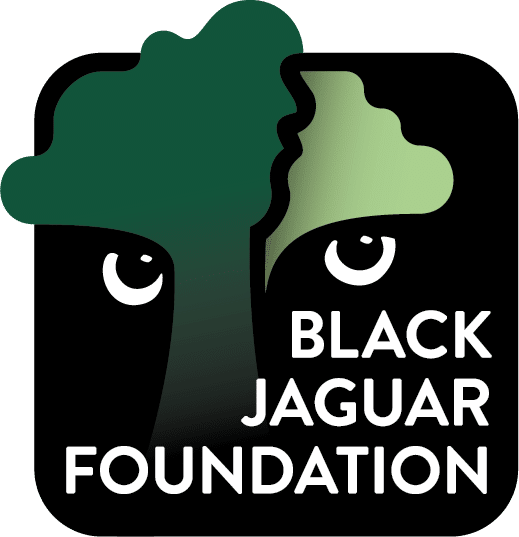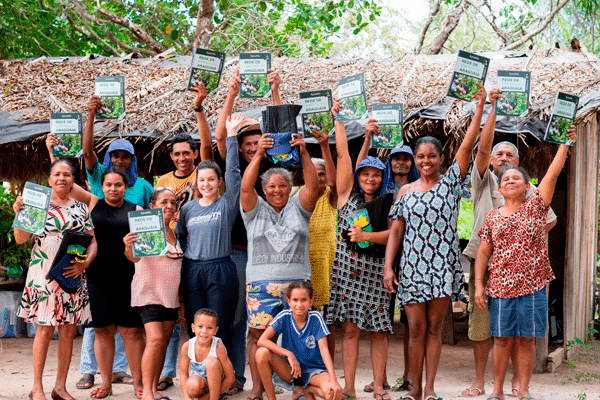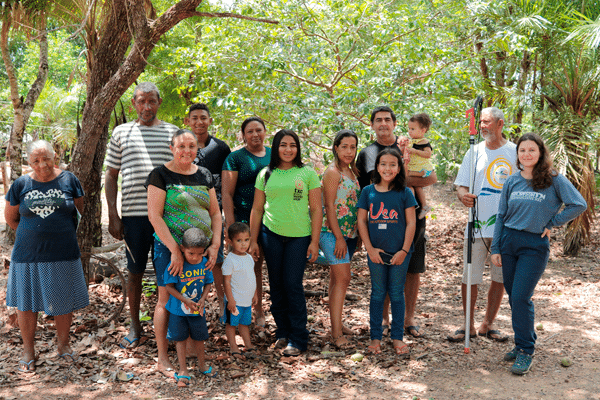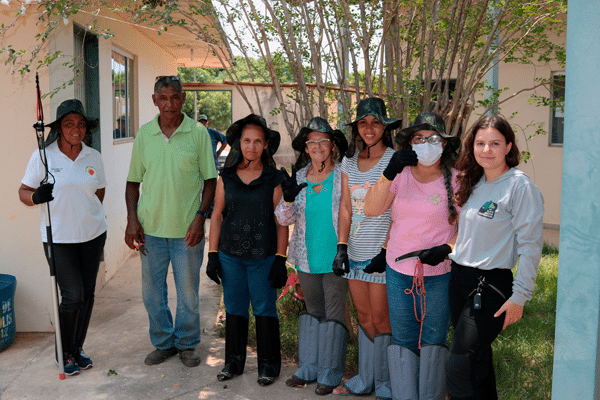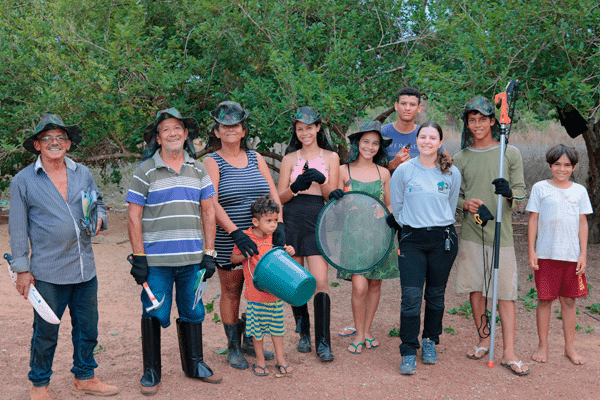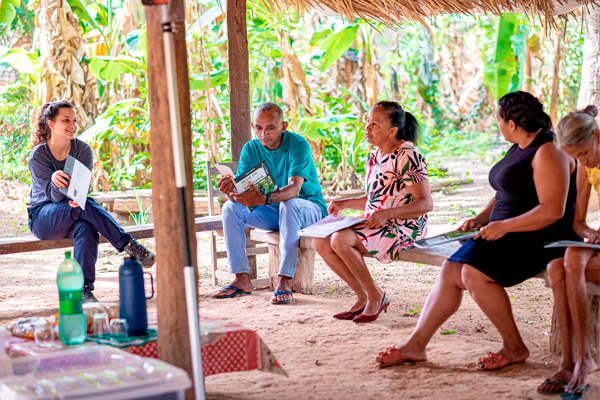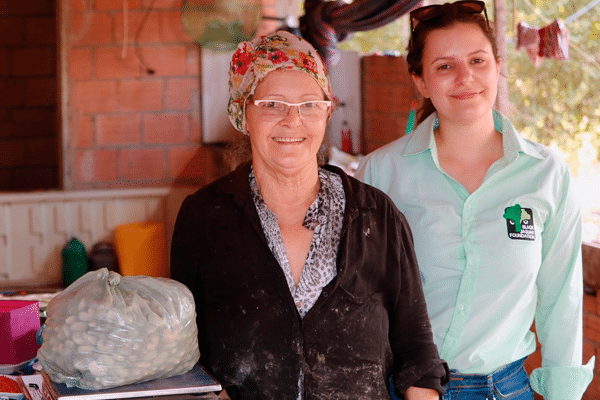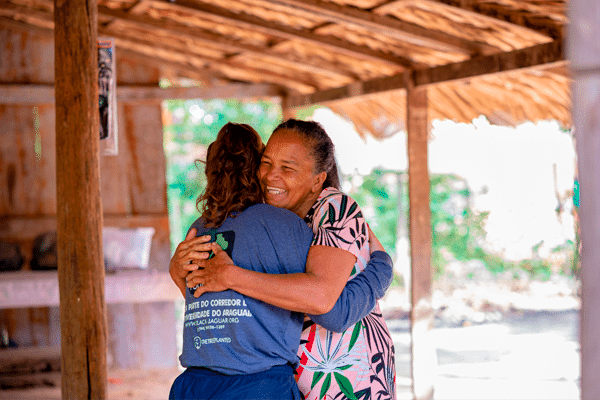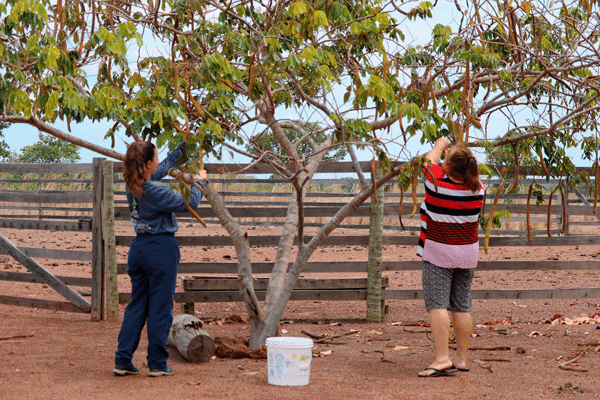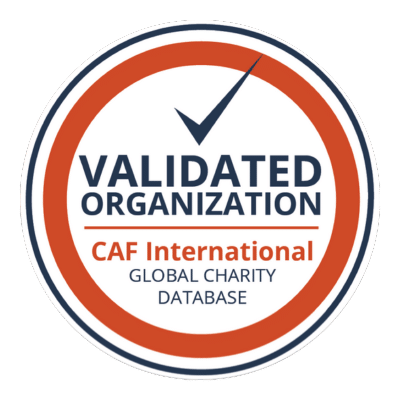Black Jaguar Foundation is now an official Grant Receiver of the World Wildlife Fund. Together, we are working to strengthen the Araguaia Seed Network, generate even more positive socioeconomic impact for local communities, and ensure quality seeds for the Araguaia Biodiversity Corridor.
Through this partnership, WWF supports the training, equipment, and seed purchases for network member collectors. These seeds, in turn, will be used for seedling production in our nursery in Santana do Araguaia and for direct sowing in our restoration areas.
Now, we are active in four cities in the Amazonian states: Santana do Araguaia (PA), Caseara (TO), Marianópolis (TO), and Porto Nacional (TO). We are providing a unique opportunity for local communities to participate in the bioeconomy, safeguarding their forests and biodiversity simultaneously.
Araguaia Seed Network: The Beginning
The Seed Network was born from the partnership between Black Jaguar and local communities to collect native seeds for use in our ecological restoration project, the Araguaia Biodiversity Corridor.
Since last year, the initiative has provided a new source of income for small farmers and settlements. Black Jaguar provides training, technical support, and equipment to enable them to become active members, collecting, processing, storing, and selling their seeds.
Positive Impacts Generated by the Initiative
We aim to strengthen community involvement in forest preservation and the recovery of degraded areas, enhancing their social and environmental benefits, such as:
- Income generation from forest products (native seeds).
- Biodiversity restoration.
- Reduction of the risk of species extinction.
- Conservation of water resources.
- Mitigation of climate effects.
The goal of this partnership is to plant 500,000 trees using various restoration techniques (seedling planting, direct sowing, and assisted natural regeneration) over two planting seasons—the first conducted from October 2022 to May 2023 and the next, starting in October 2023 and lasting until March 2024.
